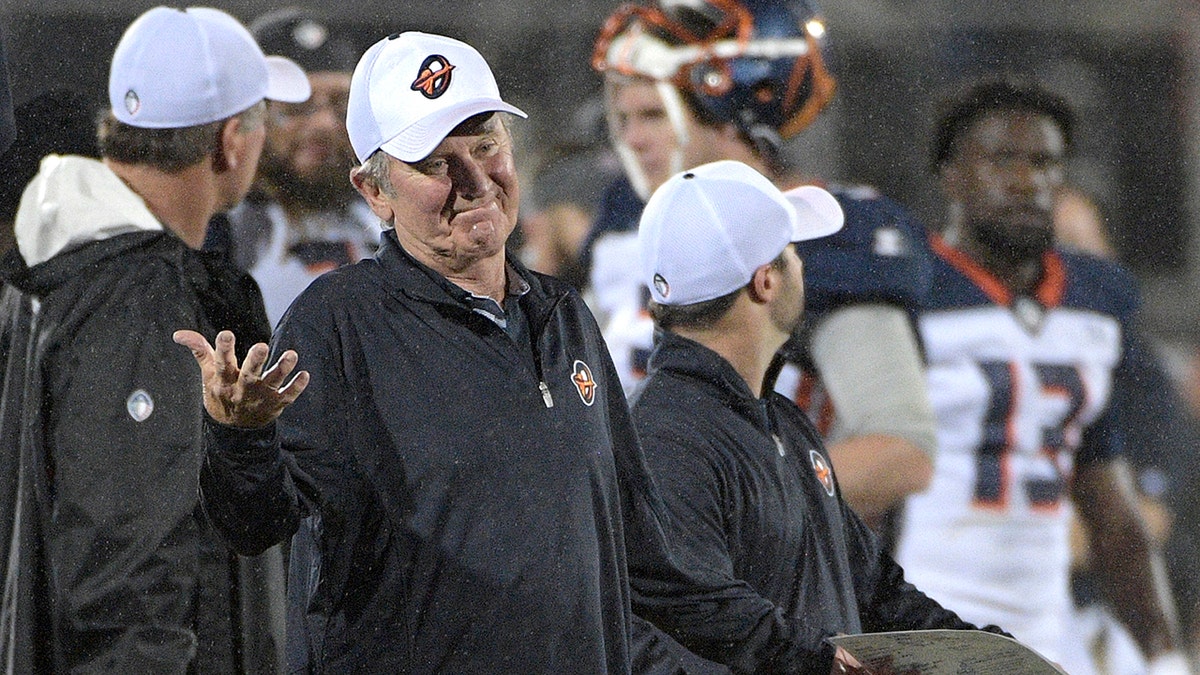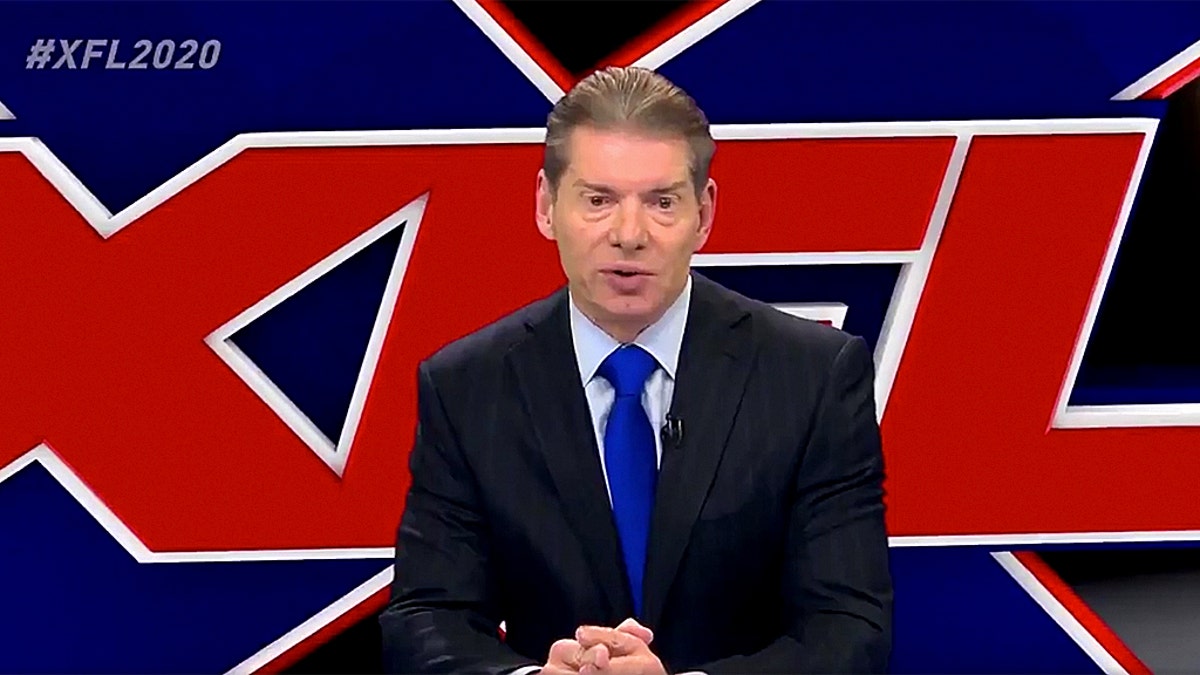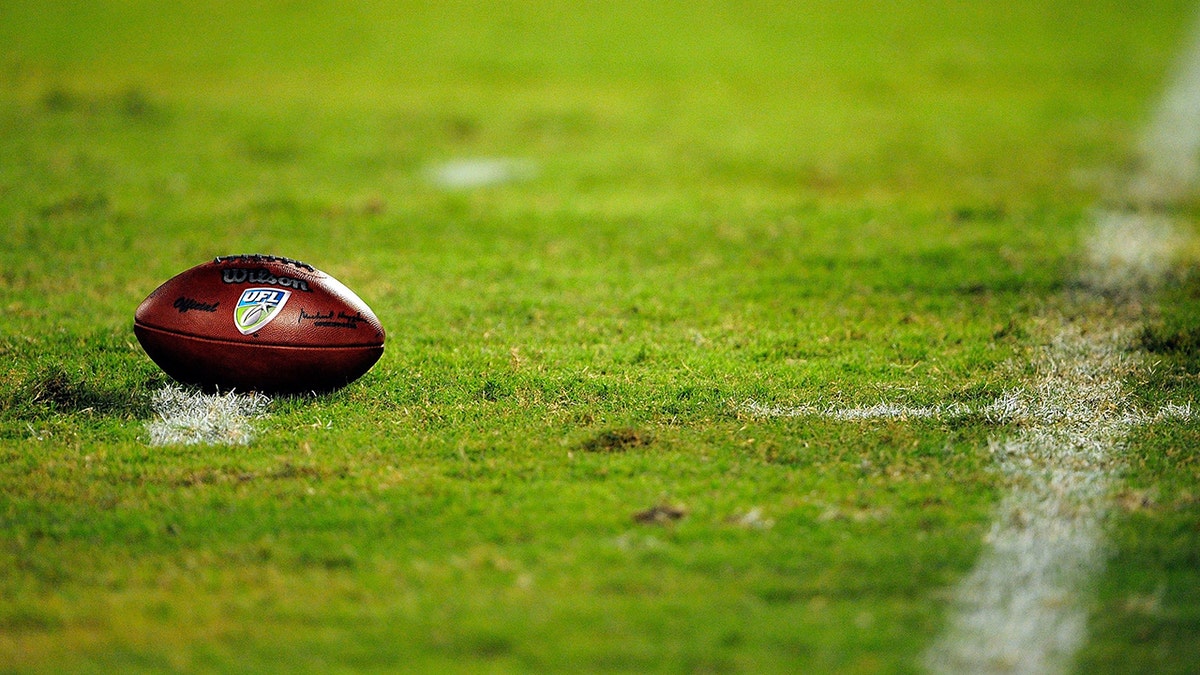
FILE - In this Feb. 9, 2019, file photo, Orlando Apollos coach Steve Spurrier reacts after a play during the second half of the team's Alliance of American Football game against the Atlanta Legends, in Orlando, Fla. (AP Photo/Phelan M. Ebenhack, File)
The upstart Alliance of American Football reportedly had its operations suspended Tuesday by owner Tom Dundon, leaving the league on the verge of folding before its inaugural season comes to an end.
League co-founder Bill Polian wrote in a statement that he was “extremely disappointed” Dundon – who owns the NHL’s Carolina Hurricanes and who invested $250 million into the AAF weeks ago – made the decision.
“I am extremely disappointed to learn Tom Dundon has decided to suspend all football operations of the Alliance of American Football,” Polian said in a statement. “When Mr. Dundon took over, it was the belief of my co-founder, Charlie Ebersol, and myself that we would finish the season, pay our creditors, and make the necessary adjustments to move forward in a manner that made economic sense for all.
“The momentum generated by our players, coaches and football staff had us well positioned for future success. Regrettably, we will not have that opportunity.”
Steve Spurrier, the legendary head coach of the league-leading Orlando Apollos, also expressed his dismay during an interview with the Orlando Sentinel.
“Everybody wanted to play out the season and everybody is disappointed,” he said. “Everyone was led to believe that the Alliance was well-funded and we could play three years without making any money and this, that and the other. Obviously, everything that was said was not very truthful.”
While the league’s top brass lamented the demise of the AAF, the swift fall of the league is a case of history repeating itself. Since the AFL merger, Any league that's either sought to be a development ground for the NFL or had the temerity to actually challenge the powerful -- and profitable -- organization has come up short.
CBS Sports’ Pete Prisco alluded to one of the reasons for the continued failure of feeder leagues when he tweeted: “Hate to see the AAF go away, but the NFL already has a minor league. It's called college football.”
Thus, the AAF will soon take up a burial plot in the growing graveyard of other leagues that sought to make waves in the U.S.
WORLD FOOTBALL LEAGUE

Ken Stabler #12 of the Oakland Raiders looks on during a circa 1970s game at Oakland-Alameda County Coliseum in Oakland, California. (Robert Riger/Getty Images)
The World Football League was founded in 1973 and its first season kicked off in 1974. The league was founded by Gary Davidson, who helped bring teams from the American Basketball Association and the World Hockey Association to the main leagues in those sports – the NBA and NHL.
The WFL attracted players like Oakland Raiders quarterback Ken Stabler and Miami Dolphins running backs Larry Csonka and Jim Kiick. But even with the star power, the league only completed one full season before it folded in the middle of the 1975 season because of financial problems.
UNITED STATES FOOTBALL LEAGUE

Quarterback Steve Young #8 of the Los Angeles Express in action against the New Jersey Generals during a mid circa 1980's USFL football game at the Los Angeles Memorial Coliseum in Los Angeles, California. Young played for the Express from 1984-85. (Photo by Focus on Sport/Getty Images)
Arguably one of the most successful challengers to the NFL was the United States Football League. The league season was played during the spring and summer in hopes of attracting those people waiting for college football and the pros to start up again. The league was founded in 1982 and lasted until 1986.
The USFL was able to attract big name talent at the time. Doug Flutie and Herschel Walker both played for the New Jersey Generals. Jim Kelly tossed the pigskin for the Houston Gamblers. Steve Young was the quarterback for the LA Express. Defensive end Reggie White lined up for the Memphis Showboats.
President Donald Trump, who, at the time, was only a wealthy business magnate, also owned the Generals. But Trump is often blamed for sinking the league due to his urging that it compete directly with the NFL in an attempt to make the NFL and USFL merge.
The USFL eventually sued the NFL and a jury determined the NFL violated anti-trust laws. However, the victory was in name only and the USFL was awarded a measly $1. The league’s rise and fall was featured in the ESPN documentary “Small Potatoes: Who Killed the USFL?” and in the book “Football for a Buck: The Crazy Rise and Crazier Demise of the USFL.”
HERSCHEL WALKER: NFL PLAYERS GIVEN 'HUSH MONEY' NOT TO KNEEL
XTREME FOOTBALL LEAGUE

Vince McMahon owns the XFL. (YouTube)
The XFL was founded in 1999 by WWE owner Vince McMahon in an attempt to incorporate the “Attitude Era” wrestling style into football, a change he thought would help the league compete with the NFL. The XFL touted a rougher version of the NFL along with WWE voices such as Jim Ross and Jesse “The Body” Ventura.
The XFL started with eight teams and had a $1 million championship game at the end of the season, which was won by the Los Angeles Xtreme. The league folded after just one season, however.
The XFL is not totally dead just yet, though. McMahon announced the rebooting of the league, which is set to start in 2020. The revamped league will have eight teams and will take aim at the NFL.
The league has already recruited Oliver Luck to be commissioner and has ex-college football coach Bob Stoops and ex-NFL head coaches Marc Trestman and Jim Zorn running teams.
UNITED FOOTBALL LEAGUE

A ball on the field during the game between the California Redwoods and the Florida Tuskers at the Florida Citrus Bowl on October 22, 2009 in Orlando, Florida. (Sam Greenwood/Getty Images)
The United Football League was founded in 2007 and didn’t kick off until 2009. It eventually featured five teams in Florida, Connecticut, Nevada, Nebraska, California and Virginia and played until 2012.
The league attracted coaches like Jay Gruden, Jerry Glanville and Jim Fassel before folding prior to the 2013 season. In 2016, former coach Dennis Green and dozens of players were still waiting for payment from majority owner Bill Hambrecht, according to the Sacramento Bee.
The UFL was thought to have been a competitor with the NFL because of its fall schedule -- but Hambrecht reportedly even considered a developmental partnership. However, losses of nearly $150 million forced the league to shutter its doors.








































